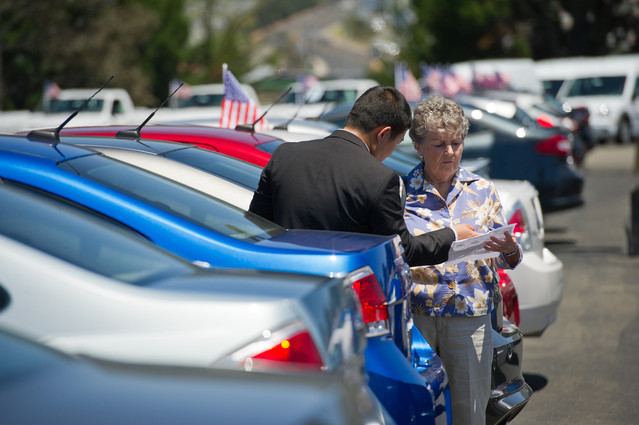Nov. 20 — California has among the most pothole-riddled roads in the nation, and state voters may be asked to more than double the often controversial vehicle license fee to raise $3 billion a year to smooth out the commute.
A group called Transportation California, headed by former Caltrans director Will Kempton, and the California Alliance for Jobs will decide early next year whether to seek signatures to put the measure on the November 2014 ballot.
The measure would phase in a 1 percent increase in the license fee by raising it 0.25 percent a year for four years. The current fee is 0.65 percent of a vehicle's market value, and that would become 1.65 percent by 2018.
Unlike other past statewide measures such as the $20 billion Proposition 1B bond in 2006, all funds from the “California Road Repairs Act of 2014” would have to be used exclusively for road, bridge and transit system maintenance, rehabilitation and transit vehicle replacement. None of it would go to widen highways or extend transit lines.
“Maintenance and rehab is a top issue and the public clearly gets it,” Kempton said. “We've got to take care of our transportation system as you would your home. Nobody likes new taxes, but the public seems aware of the need to fix the system.”
The proposal may benefit from the backing of Kempton, who is one of the most influential transportation leaders in the state. He also served as head of the Santa Clara County Traffic Authority, the agency that oversaw the building of Highway 85 and the widening of 101 and 237.
The issue is whether voters will agree that paying a higher fee is worth avoiding potholes. Gas tax funds are declining as more drivers purchase electric vehicles, hybrids and fuel-efficient gas-powered cars.
“Electric car owners use the roads but pay no taxes for repair,” said John Whitehall, of Santa Clara. “Hybrid owners pay but less taxes than the rest of us. When will someone in our Legislature wise up and base taxes for roads and highways on the actual mileage driven by car owners?”
But motorist Karen McDaniel countered: “I would gladly pay an increased tax to pay for road maintenance, but I am skeptical that it would be spent on that. I've seen too many improvement projects that make traffic worse and I'm still damaging my car on ridiculous potholes.”
In 2003 Gov. Gray Davis raised the fee and motorists rebelled. Arnold Schwarzenegger campaigned against the increase during his successful effort to recall Davis, and he quickly abolished the license fee hike.
“Everyone acknowledges we need more money to take care of our crumbling transportation infrastructure, but up until now there has been no consensus as to exactly what to do,” said Russell Snyder of the California Asphalt Pavement Association. “This should jump-start the policy debate.”
The road repairs act proposal would phase in a road repairs fee of 1 percent of a vehicle's market value over four years, with the fee taking full effect by 2018.
Once cleared for signature gathering, proponents would have up to 150 days to collect 807,615 valid voter signatures to qualify for the November 2014 ballot.
Twenty-five percent of funds would go to cities across the state based on population. An equal amount would go to counties, while 40 percent would be earmarked for state highways — 60 percent to Southern California, 40 percent to Northern California.
The remaining 10 percent would pay for transit system maintenance.
———————
Copyright 2013 – San Jose Mercury News
Thanks for reading CPA Practice Advisor!
Subscribe Already registered? Log In
Need more information? Read the FAQs
Tags: State and Local Taxes, Taxes




